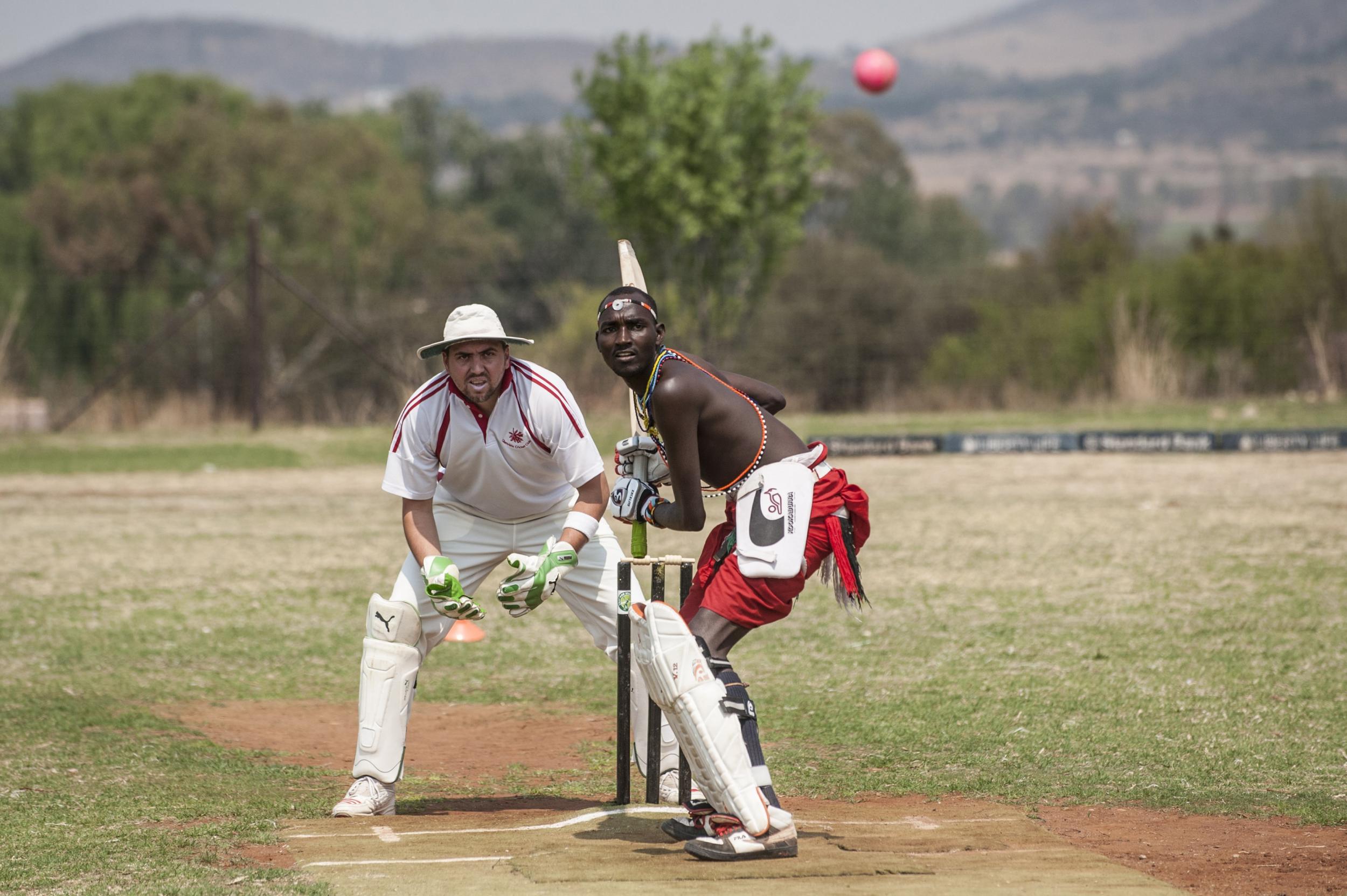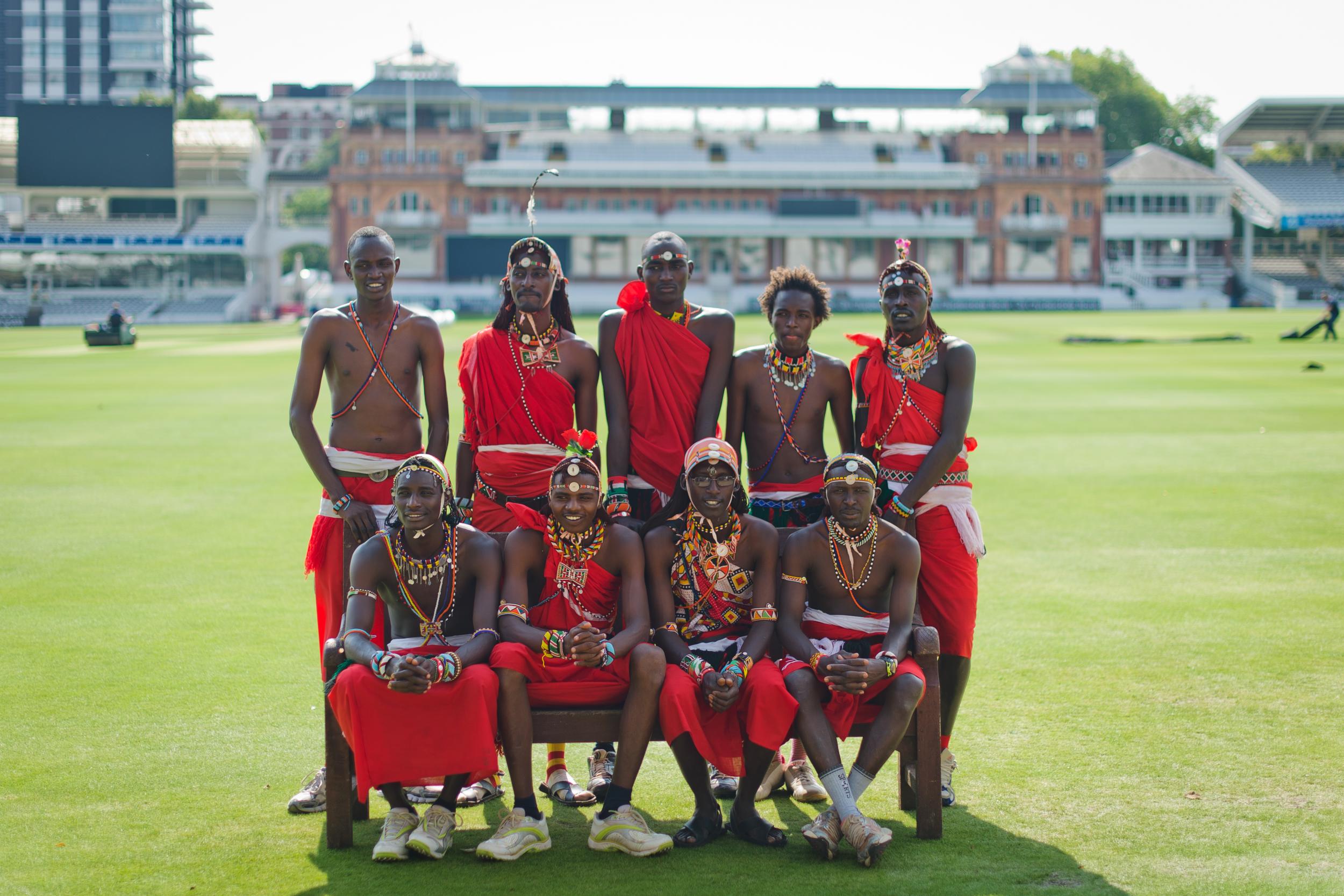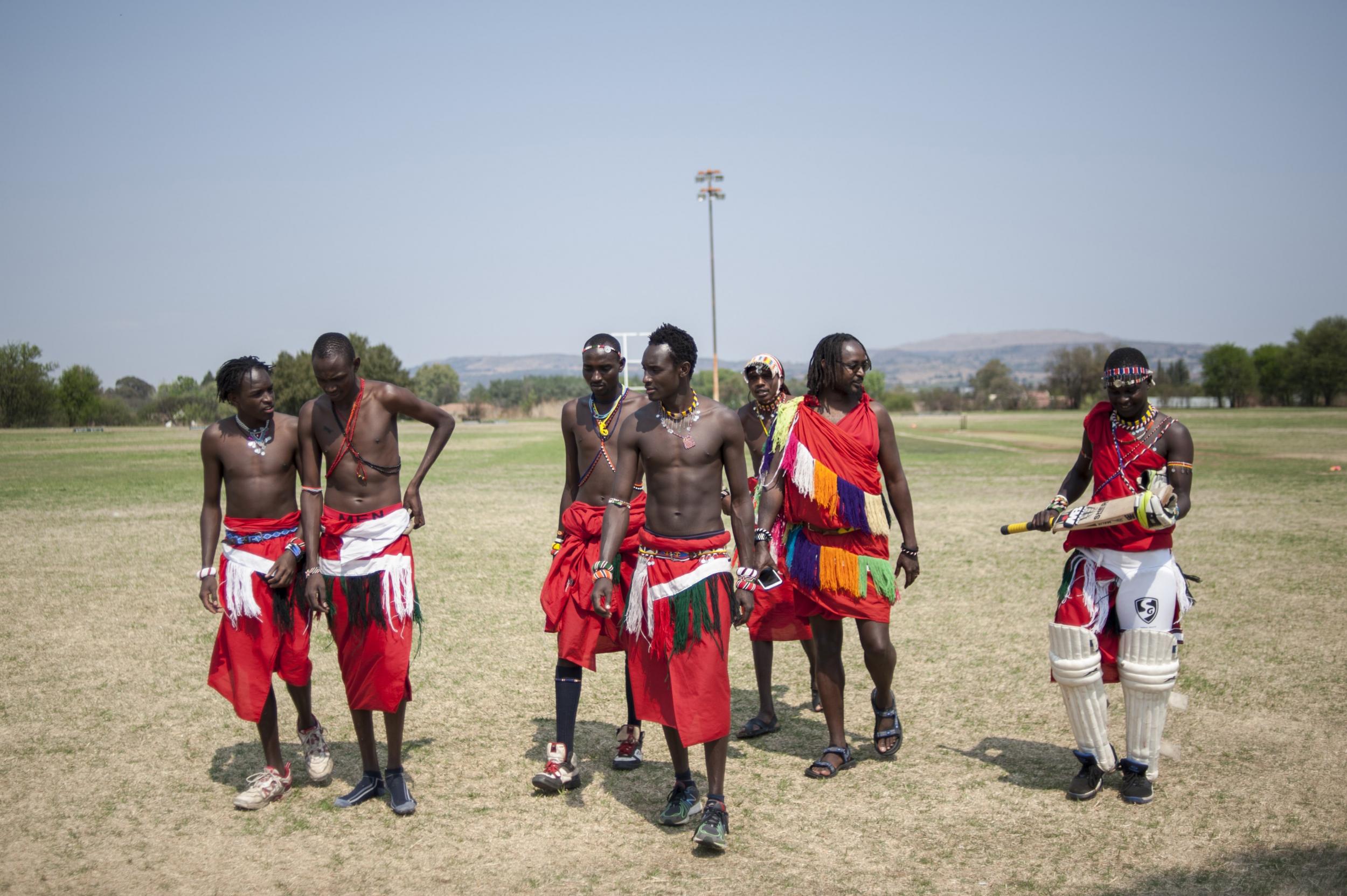Warriors, the film: The Maasai Cricket Warriors fighting to end FGM and give every woman a voice
Warriors is the moving story of how a group of Maasai tribesman use cricket to end the brutal practice

Cricket is the unlikely but effective vehicle for change among a group of Maasai warriors trying to stamp out the brutal tradition of female genital mutilation (FGM) in a new documentary released on Friday.
A film that marries two very different themes, Warriors follows the tribesman who set up the first Maasai cricket team in a remote region of Kenya as they travel to England to compete in the 2013 Last Man Stands world championship. As well as being keen cricketers, Captain Sonyanga Ole Ngais and the Maasai Cricket Warriors are young men hoping to use the platform cricket gives them to change the gender discrimination deeply ingrained in their culture.
FGM is a non-medical practice involving the partial or total removal of the external female genitalia, with devastating physical and psychological consequences. It can lead to hemorrhaging, complications in childbirth, fistula and even death.
The practice is considered a rite of passage that marks the transition from childhood to womanhood and is a requirement for girls in some communities in Kenya and other countries before they marry. Despite being banned in many countries, including Kenya, an estimated 140 million girls and women globally have been subjected to FGM. Many undergo FGM as young as eight or nine and are then pulled out of school and married off. In Warriors, director Barney Douglas documents Ngais and his brothers as they use cricket to travel, unite the community, spread a crucial message about equality and fight for the rights of their wives, sisters, daughters and mothers.
The Warriors have a difficult task ahead of them with the elders, who are shown at the beginning of the film scoffing at the idea of a woman protesting their human rights and expressing concerns men would refuse to marry uncircumcised girls.

Their determination to tackle FGM is about more than ending the practice; it is about combating the arranged marriages, complications giving birth and sexually transmitted infections that arise after girls are cut. The narrative flits back and forth between the Warriors playing cricket and campaigning for equality, showing their determination to give each woman a place, a voice, and a right.
Douglas' film would benefit from giving women more of a presence on screen, but those who do appear have important stories to tell. One teenager describes being traded for livestock before being cut. “An old man brought cows for my father, and took me away as his wife,” she recalls, bringing their harrowing reality to the forefront of the film.
Elders are the head of this community and challenging them on issues such as gender equality, FGM and HIV is a difficult task, but one that proves fruitful after the team returns to Kenya. The pivotal moment arrives during the final meeting with the elders and the younger Masai warriors, who return with a new standing in the community because of their travels and cricketing success.

Douglas did not have a translator for this conversation and so could not interject, allowing the discussion to flow freely as young Maasai men agree to only marry women who have not been cut. A critical yet touching moment in the film, it benefits from being uninterrupted and demonstrates how cricket has bridged the generational divide in this community.
Ngais and Douglas now plan to hold screenings in different villages and even in different countries if the opportunity arises. “We are going to continue educating the girls and bringing them together,” Ngais told The Independent. “Before in the Maasai you are not allowed to question the people, the life, or the culture. With this agreement with the elders, the girls can now have that voice to talk for themselves. This film made everything clear for the girls to see that this is what is right for us and we have to follow it.
“We will take the girls with us because that is the only time we get the message well understood - when we have the real ambassadors talking about it.”
The Warriors are still playing cricket, and travel from village to village with the sport, training sessions, education and an important message about FGM. Their next competition will be in Australia in January.
“We are still playing cricket because that is what is what made us realise our message, and we are using cricket to spread this message,” says Ngais. “There is a lot of interest for youths and we want to empower the youth. When we empower the youths and the younger society that is when we can make change.”
Warriors is in cinemas now.
Join our commenting forum
Join thought-provoking conversations, follow other Independent readers and see their replies
Comments
Bookmark popover
Removed from bookmarks